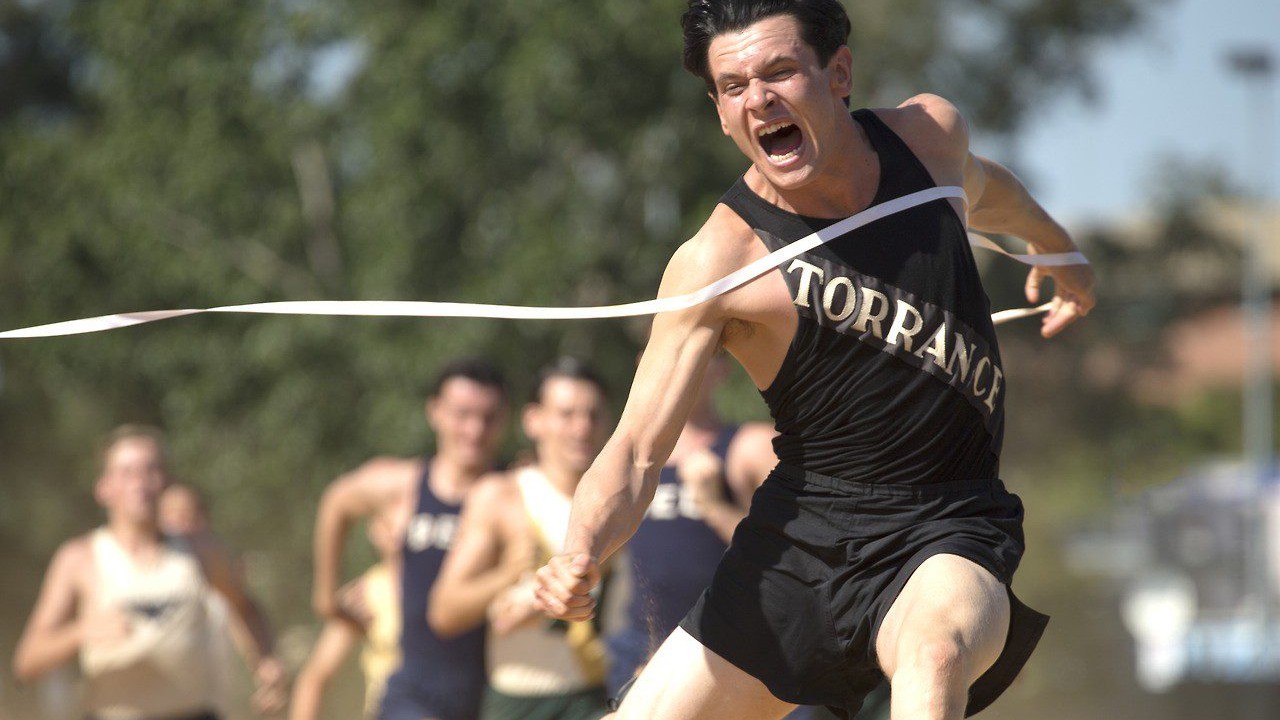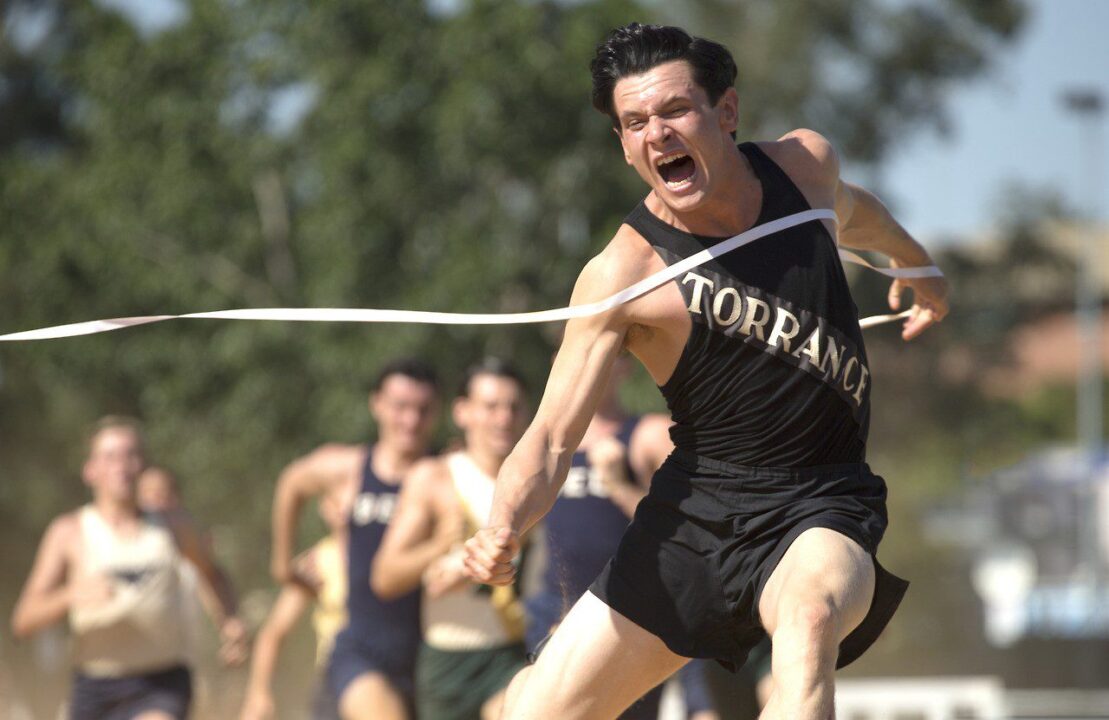An extended opening sequence launches the journey that is Unbroken. Rather than starting from the beginning, we are dropped right in the middle of a WWII air battle, and while this technique certainly isn’t new, thanks to stunning craftsmanship, this opening scene is a reminder of what makes movies great.
Even going into the film without seeing the trailer, it’s household knowledge that this is a true story of survival. Olympic runner turned solider Louis Zamperini (Jack O’Connell) lived an incredible life, and the movie is a sincere tribute to his spirit, which carried him through some truly grueling experiences. It cannot be ignored that World War II movies are churned out nearly every year, and, therefore, finding original spins on the subject is a daunting challenge. We see glimpses of true originality in Unbroken, especially in the visual and sound elements, but overall, the result is underwhelming.
Is it awful and inhumane? Yes. Can the human spirit overcome it? Yes. Did anyone need to watch this film to discover this? No.
Because this is a true story and one about survival, the film is not plot driven. Instead, it explores the entirety of his experience. We’ve seen this type of film dozens of times (including last year’s masterpiece 12 Years a Slave), but in order to pull it off there needs to be something for the audience to learn or take away. The latter half of the film involves Zamperini’s experience as a prisoner of war, which is harrowing and brutal, and automatically brings out emotional reactions from everyone. At the same time though, I am left with no new revelation as to the POW experience. Is it awful and inhumane? Yes. Can the human spirit overcome it? Yes. Did anyone need to watch this film to discover this? No.
My frustration may stem from the fact that there are places where the movie has the opportunity to give us some kind of intriguing new revelation, but it doesn’t. The flashbacks are done extremely well (and there’s a brilliant decision as to when to stop using them), but they don’t give us enough information about any other important people in Zamperini’s life. Later, a major story element is the relationship between Zamperini and his cruel tormentor at the camp, nicknamed The Bird (Miyavi in a debut performance). Their relationship is compelling and Miyavi shows restrained brilliance, but he is not given enough material for us to fully understand his character. There are hints at the internal struggle that make The Bird sympathetic, but not nearly enough to get inside of him and wrench in his emotions the way we have in some of his comparable villainous roles. Personally, I see this as the biggest missed opportunity.
There are tangible places where this could have been a richer, more powerful film. I am excited that Angelina Jolie is moving into directing, this being her second picture behind the camera, and because the craftsmanship is so strong, this movie makes me excited for what will come next. For now, however, there is a lot left to be desired, and as I watched the film, my personal rating for it progressively declined. You will enjoy learning a story that you might not otherwise know, but when compared to iconic films dealing with similar material, Unbroken is comfortably in the middle and not outstanding.
H. Nelson Tracey
Nelson is a film director and editor from Denver based in Los Angeles. In addition to writing for Cinemacy, he has worked on multiple high profile documentaries and curates the YouTube channel "Hint of Film." You can check out more of his work at his website, hnelsontracey.com


